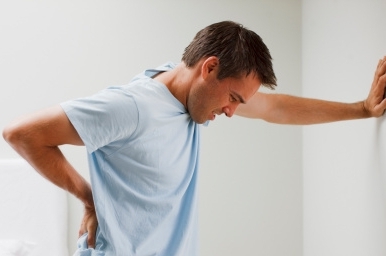The most apparent symptom of hemorrhoids is that they are usually felt and seen, as a small bulge of grape-like bulge protruding from the anus the common appearance of prolapsed internal hemorrhoids. The size, shape and number of hemorrhoids differ, from a patient to another.
A hemorrhoid can be larger than a normal grape, even a size of a walnut, but commonly hemorrhoids are the size of a chick pea.
In some cases, there is only one hemorrhoid, while some patients can have numerous hemorrhoids commonly a little group of it is diagnosed.
Hemorrhoids can appear like compressed grapes, some look like bloated grapes, while other can look like creased grapes. This is because of the plum-like color of the hemorrhoids.
Hemorrhoids can protrude from the anus, that is come out, sometime the hemorrhoids stays inside the rectum out of observable exterior, whereas some hemorrhoids form on the skin just outside of the anus this latter kind of hemorrhoids are called external hemorrhoids, and they are usually presented as a single bulge in the skin around the rectal opening.
An essential symptom of hemorrhoids is their color:
Vivid pinkish-red hemorrhoids are usually prolapsed internal hemorrhoids.
Bluish or plum-like, or dark reddish hemorrhoids are commonly coagulated hemorrhoids.
Brownish hemorrhoids are commonly external hemorrhoids.
Other typical signs and symptoms of hemorrhoids
Hemorrhoids have been troublesome to patients throughout recorded time, and hemorrhoids have starred their role well, by their knack to cause a person to be irritable and nippy to short temper, to lose focus and to become susceptible in committing human errors.
Hemorrhoids can be so stressful to a patient, that even the dreadful hemorrhoid operation of the olden times, were considered worth the pain by the hemorrhoids patient, to try and cease the pain the hemorrhoids are causing.
It is interesting to note, that a football championship game was lost by a team because the top player is suffering from a hemorrhoid.
Another common warning sign is that hemorrhoids usually coat the anus, stopping the rectal opening from being observed.
A very irritating symptom of hemorrhoids is that they can result to a persons anus to become itchy, specifically around the rectal opening, this hemorrhoid symptom can also be a symptom of parasitic worms, rather than hemorrhoids, thus a medical examination is needed.
Hemorrhoids can also result to a searing pain, or anxiety around the rectal opening.
Sully undergarments can be a usual symptom with hemorrhoids as well. This hemorrhoids symptom can result to the other symptoms of irritation and searing, similar to a diaper rash.
Hemorrhoids can also lead to a sensation of deficient bowel movement you may have the feeling that you have not emptied your colon, even though you already have. This hemorrhoid symptom is a specifically horrible one, as straining to get your feces out that isnt really there can worsen or lead to hemorrhoids in its own right. The interruption of bowel movement is a reaction of the digestive system as it mistakenly identifies bulging hemorrhoids as feces.
